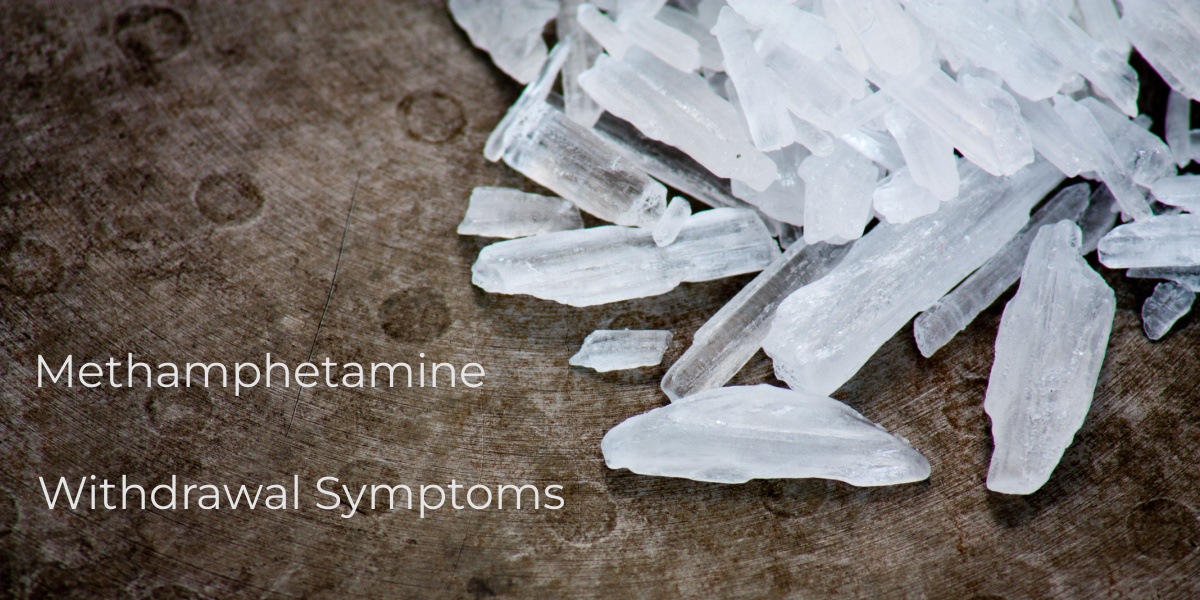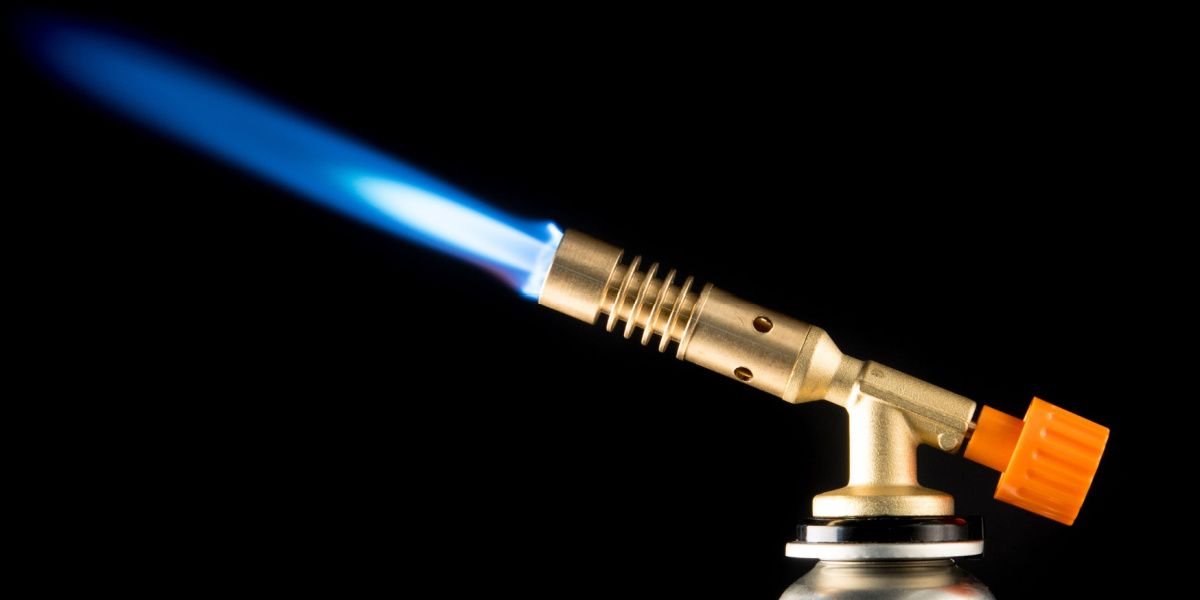Methamphetamine, commonly referred to as meth, crystal meth, or ice, is a synthetic stimulant that is produced and used illicitly. It is similar to amphetamines, a medication often used in the treatment of ADHD and narcolepsy, although its different properties make it more potent and toxic.[1]
Methamphetamine is produced and sold illegally and used recreationally for its effects. It is commonly smoked, although it can also be inhaled nasally, ingested, or injected. It creates a feeling of euphoria, or ‘high,’ and increases energy and alertness. Because of its effects, methamphetamine is a widely abused substance with the potential for addiction and withdrawal symptoms.[2]

Does methamphetamine cause withdrawal symptoms?
When an individual stops using methamphetamine, they will often experience unpleasant withdrawal symptoms. Because of this, it is often recommended to detox from methamphetamine with professional advice and support.[3]
Methamphetamine is fast-acting and creates a feeling of euphoria. Because of this, many people abuse this substance, regularly using large doses to achieve a ‘high’. With regular use, tolerance can develop, resulting in a need for increased doses to achieve the same effect.[4]
Regular use can also cause the development of physical dependence, which causes unpleasant effects when substance use is stopped and contributes to the formation of an addiction. Once a physical dependence has formed, the individual may continue to use methamphetamine in frequent and large doses in an attempt to maintain the ‘high’ or prevent the occurrence of withdrawal symptoms.[2]
Methamphetamine affects the level and activity of several neurotransmitters. It largely increases the level of dopamine and serotonin, while also impacting norepinephrine, epinephrine, and histamine. Dopamine plays a large role in the reward circuit, contributing to a pleasure response and reinforcing methamphetamine use. Serotonin affects several functions, including mood, sleep, and appetite.[5]
Studies have found alterations in the brain chemistry and functioning of people dependent on methamphetamine. When prolonged methamphetamine use is stopped, the brain must suddenly adapt to the lack of the substance and attempt to regain normal functioning, which causes several physical and emotional effects.[4][5]
Methamphetamine withdrawal symptoms
When an individual stops using methamphetamine, particularly if they stop abruptly, they are likely to experience withdrawal symptoms. These can be mild to severe and can last several days to several months.[1][6]
Common methamphetamine withdrawal symptoms include:[1][2][3][7]
- Mood swings
- Low mood
- Anxiety
- Paranoia
- Agitation
- Irritability
- Drug cravings
- Fatigue
- Insomnia
- Oversleeping
- Vivid dreams or nightmares
- Confusion
- Impaired cognitive functioning, such as poor memory and concentration
- Muscular pain
- Extreme increase in appetite
In some cases, withdrawal symptoms can be very severe and may last a long time. Severe methamphetamine withdrawal symptoms can include:[1][2][4][7]
- Psychosis
- Severe depression and suicidal ideation
- Seizures
Methamphetamine withdrawal timeline
In most cases, amphetamine withdrawal symptoms begin within 3-24 hours of the last dose as the substance leaves the system. This initial phase is known as a ‘crash’, often lasting around three days, and is when withdrawal symptoms are at their most severe. During this phase, individuals will often experience extreme hunger, fatigue, and depressive symptoms.[3]
Acute withdrawal symptoms typically last 7-10 days, after which they reduce in severity. Typically, depressive and psychotic symptoms will be alleviated within this time.[1]
Mild withdrawal symptoms may continue for up to three weeks in many cases, while drug cravings could continue for around five weeks. For some people, mood and sleep disturbances have been found to last for several months.[1][6]
The duration and severity of withdrawal symptoms will vary from person to person. Factors impacting their severity include the duration of substance use, dosage, whether substance use is stopped gradually or abruptly, the individual’s age, and underlying physical or mental health conditions.[3]
Methamphetamine detox treatment
There are various options when considering methamphetamine detox treatment. Some people may stop using methamphetamine abruptly (cold turkey), although this is likely to cause severe withdrawal symptoms, while others may gradually reduce their use.
Methamphetamine detox can be done at home if withdrawal symptoms are not severe. This can involve the support of family and friends with professional input and support from a doctor.[6]
Individuals could also detox with outpatient treatment, attending regular appointments with a professional who provides ongoing support without the need to stay in a residential facility.[7]
Inpatient detox treatment might be appropriate following prolonged and extensive use of methamphetamine, as these individuals are likely to experience severe withdrawal symptoms. Professionals at a hospital or detox center can provide consistent support and monitoring, managing any severe withdrawal symptoms or physical complications that occur during detox.[3]
There are currently no evidence-based medication treatments for methamphetamine detox. However, there are some recent studies investigating the effectiveness of several different medications for this use. Medications that have shown some positive effects include:[5][8]
- Methylphenidate: Methylphenidate is a medication often used to treat ADHD and is similar to amphetamine but with less potential for abuse. It impacts dopamine and norepinephrine but has no impact on serotonin. Some studies have found that it can help reduce methamphetamine use in dependent individuals.
- Modafinil: Modafinil is a non-amphetamine stimulant medication, often used to treat sleep disorders. It is thought that modafinil could be beneficial for methamphetamine detox as it can improve cognition and increase the ability to respond to therapies and interventions aimed at reducing addictive behaviors. There is some evidence that it can help reduce cravings, although this is limited.
- Dextroamphetamine: Dextroamphetamine is a commonly prescribed stimulant medication (Dexedrine) used to treat ADHD. It impacts dopamine, serotonin, and norepinephrine. It has been found to show positive effects in reducing methamphetamine use, cravings, and dependence, and can improve treatment adherence. However, it also has a high potential for abuse.
- Naltrexone: Naltrexone is used in opioid dependence treatment and has demonstrated some positive effects in reducing methamphetamine use in dependent individuals. It can help reduce the reinforcing effect of the drug, therefore deterring use, and can reduce cravings.
- Antipsychotics: Some antipsychotic medications have shown benefits in reducing methamphetamine use and dependence. Typical, or first-generation antipsychotics have shown more potential than atypical, or second-generation antipsychotics.
- Bupropion: Bupropion is an atypical antidepressant that impacts dopamine and norepinephrine. It has been shown to reduce some methamphetamine withdrawal symptoms and improve cognitive impairments caused by its use. The evidence for its effect is limited but it has the potential to reduce methamphetamine use and cravings.
Additionally, some individuals may be prescribed medications to help manage withdrawal symptoms, such as:[4][6][7]
- Antipsychotics: Antipsychotics might be prescribed as a short-term treatment to help reduce psychotic symptoms, agitation, and irritability.
- Antidepressants: Antidepressant medications, such as mirtazapine or SSRIs, might be prescribed to help reduce depressive symptoms and anxiety.
- Benzodiazepines: Benzodiazepines might be prescribed to help reduce symptoms such as agitation and irritability or to help improve sleep. These medications should only be used short-term, for up to ten days.
During methamphetamine detox, it is common to experience extreme changes in appetite and sleep. Improving sleep quality and nutritional intake is crucial throughout the detox and recovery process to improve physical and mental well-being.[7]
Many individuals with a substance use disorder benefit from support during and following detox to improve their rehabilitation and recovery. Psychotherapy, support groups, 12-step programs, and holistic therapies can be used to help with managing underlying emotional distress, offering psychosocial support, maintaining abstinence, and assisting in relapse prevention.[2][3][4]




-guide-detail.jpg?v=1722502261)